What's behind the N Korean 'ghost ships' washing up in Japan?
- Published
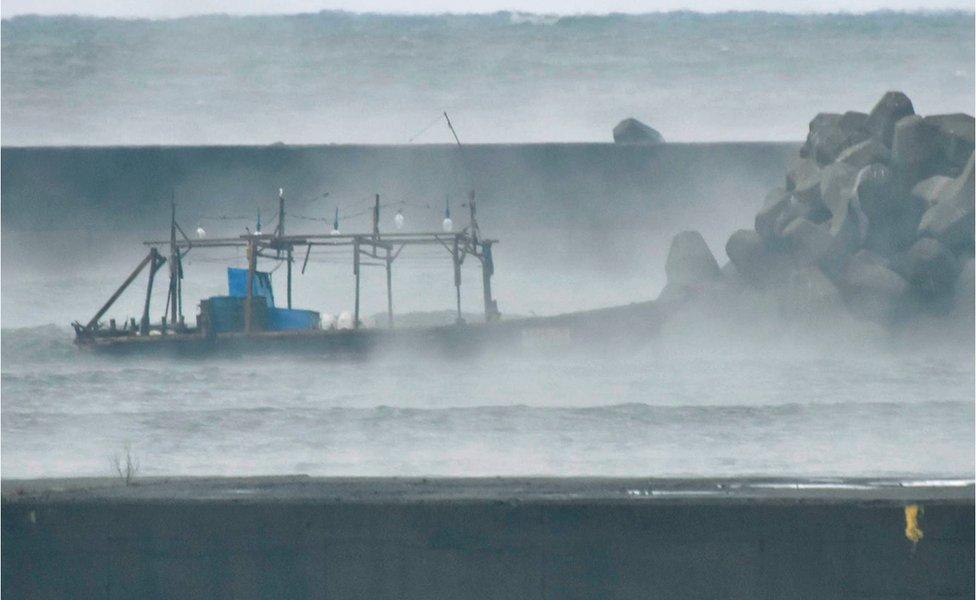
A boat found in November had bare light bulbs commonly used to attract fish at night
Mysterious "ghost ships" have been washing up on the western shores of Japan over the few past years, thought to be fishing vessels from North Korea.
Many of the ships have only dead bodies or skeletons on board but in recent months, several have been found with their desperate North Korean crew still alive.
What are these 'ghost ships'?
They are called ghost ships because they are usually found empty or with only corpses on board off Japan's western coast.
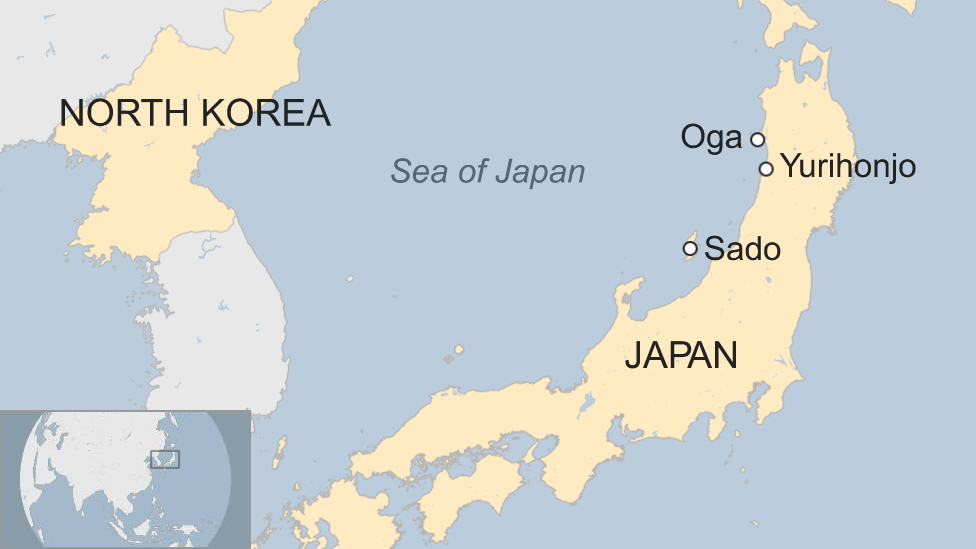
In 2017 though, a number of ships have washed ashore with the crew still alive.
In November, eight men were found alive on a boat at Yurihonjo marina. They said they were fishermen from North Korea who had gotten into trouble at sea.
Another ship picked up by the Japanese coast guard was found to have 10 men on board.
The boats are often rickety and very simple vessels with no modern engines or navigation instruments on board.
Where are they from?
With most of the boats washing up empty or only with dead bodies, it was initially not clear where they had come from but some observers speculated they were North Korean fishing boats that had been searching for king crab, squid and sandfish.
Markings on some of the vessels, in Korean, indicated that they belonged to the North's military which is heavily involved in the fishing industry.
In the recent cases where boats were found with the crew still alive, the sailors confirmed they were from North Korea. One of the boats rescued in November also had a plaque indicating it belonged to the military.
Unsurprisingly, there has been no mention of the missing vessels from North Korea.
How did those on board die?
When boats with corpses wash ashore, Japanese officials usually try to investigate the cause of death. But as they tend to be in an advanced state of decomposition it is often impossible to determine that.
During the winter months and with little food on board, exposure and starvation are the most likely explanations for their deaths.
The wooden boats washed up are old and heavy and have neither powerful modern engines nor GPS navigation systems.
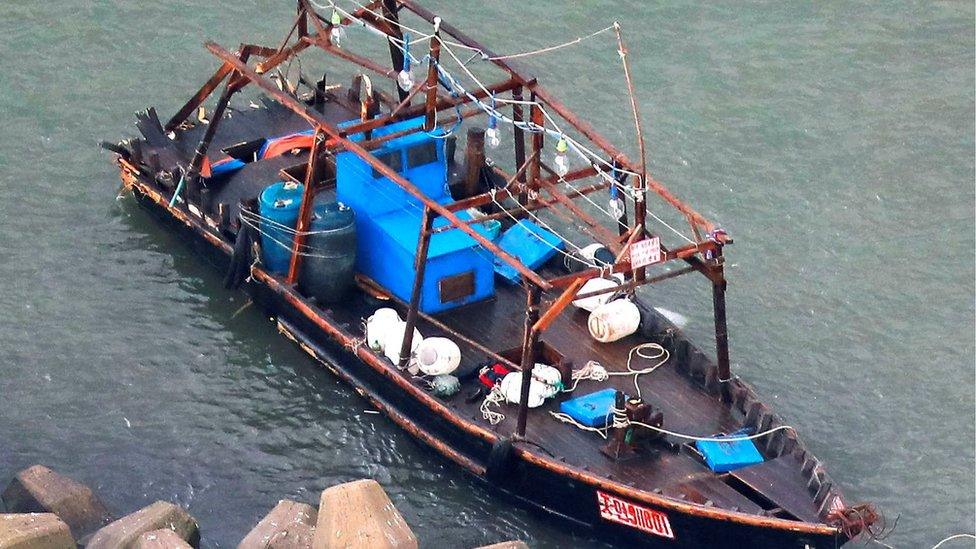
The vessels are very basic
If they ventured too far out or got blown off course, they would lose their bearings or find it hard to beat the currents even if they knew which way to go.
According to news agency AFP, 2017 has seen a record number of North Korean fishermen rescued alive with more than 40 arriving so far this year.
Are they defectors? Or spies?
It has been suggested the sailors could be defectors trying to make it across the Sea of Japan to escape the regime in Pyongyang.
But the crews found alive have asked to be sent back to North Korea.
Also, taking the route all the way to Japan is significantly further and more dangerous than trying to sail to South Korea.
The speculation they might be spies is also thought to be unlikely. Despite a few sailors rescued alive, most of the boats still wash up empty or with the men dead.
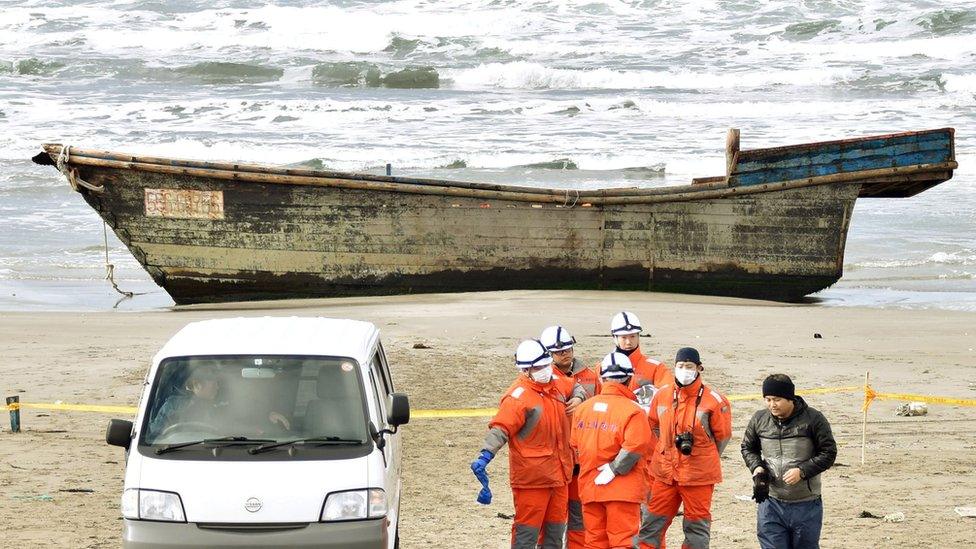
The remains of eight people, some reduced to bones, were found on this boat
The crews found alive in November was thought to have looted a small shelter off the coast of Japan before they were picked up by the coast guard.
The shelter for Japanese boats in distress was found broken into with appliances missing, including a rice cooker and a television. When the North Koreans were later spotted by the coast guard they appeared to hastily dump these items off their vessel, local media reported.
According to Japanese media, the sailors later admitted they had been stealing the missing equipment from the refuge hut.
Why would fishermen take this risk?
With international sanctions tightening due to Pyongyang's nuclear and missile tests, the regime is under pressure to boost agriculture and food supplies.
One hypothesis posed by Japanese media is that the North Korean leadership is demanding bigger catches and sailors are being forced to take chances to meet those targets.
What might be making the situation worse is that North Korea sold the fishing rights in some of its territorial waters to China last year. That means a smaller area for local fishermen to fish in and hence they might be having to venture further out in search for fish.
Profit-seeking has been suggested as another possible incentive to take such risks.
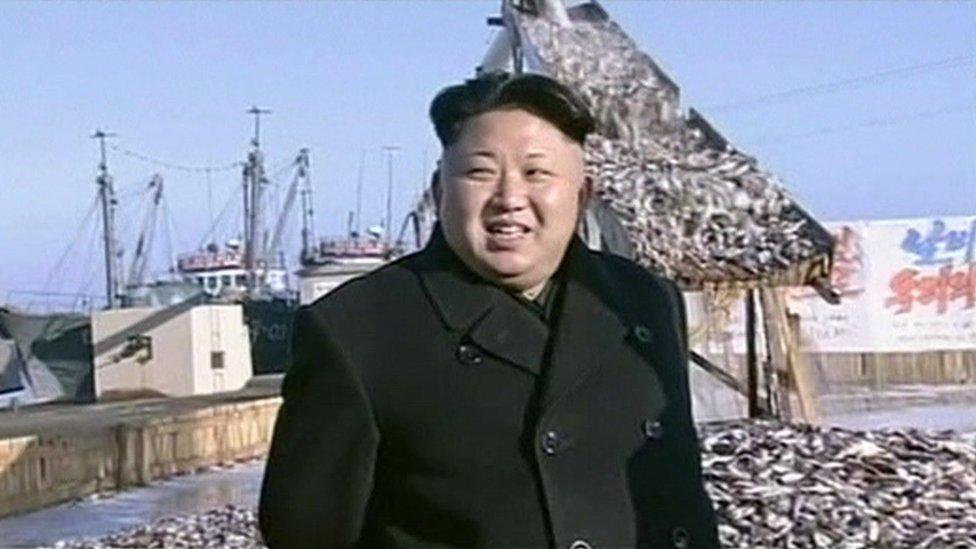
Kim Jong-un has urged fishermen to increase their catch
It is common in North Korea for workers to keep some of the surplus they generate past the targets set by the state. This quasi-capitalist system has been credited with improving production, analysts say.
But this promise of some private surplus is also thought to drive people to take greater risks to improve their situation - which could well include taking desperate chances at sea.
- Published27 November 2015
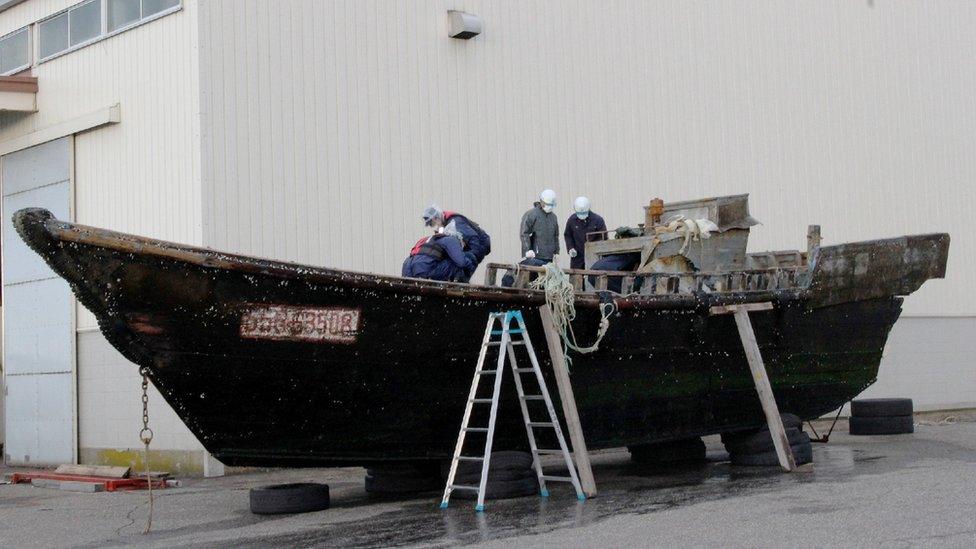
- Published6 May 2016